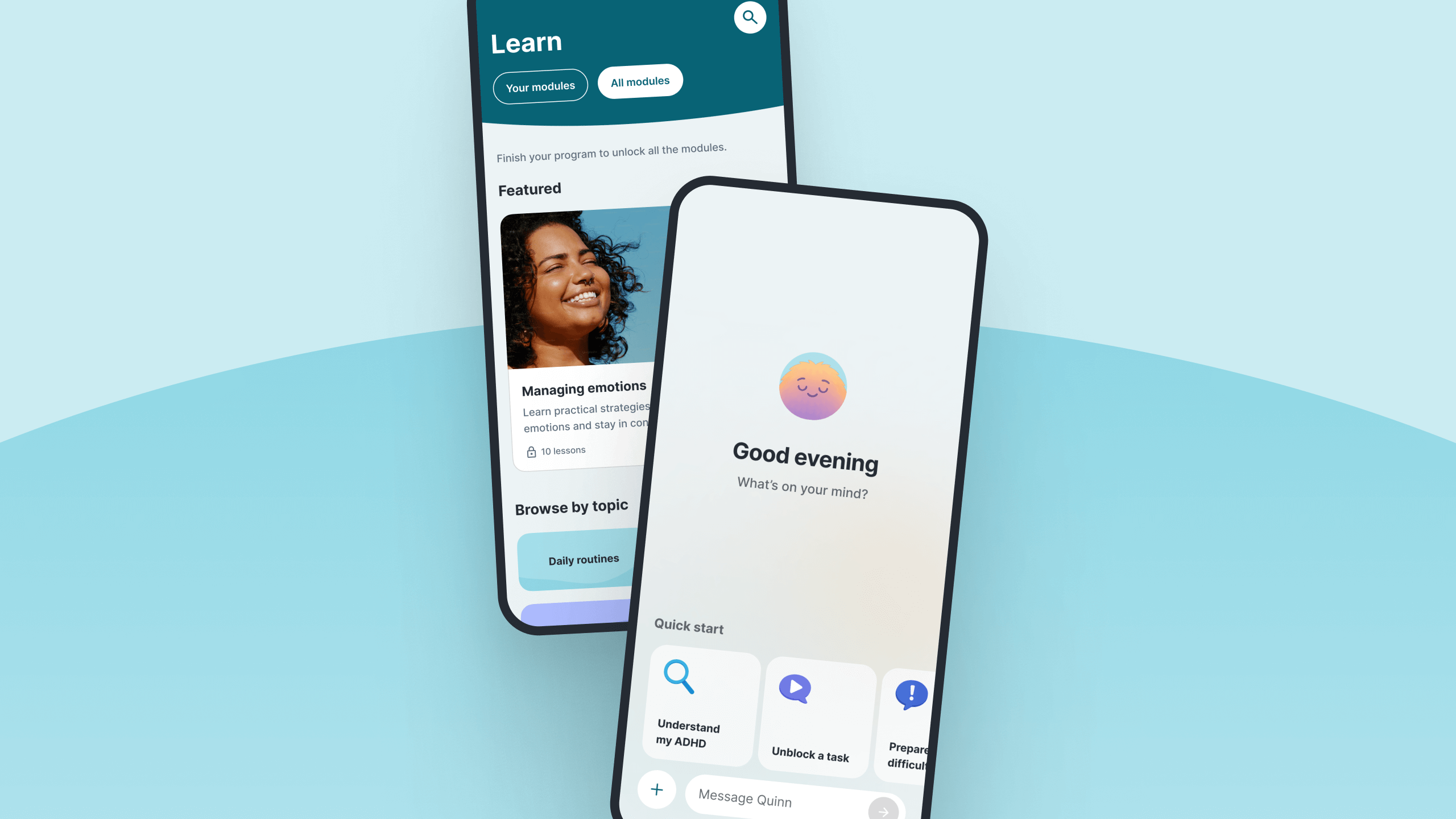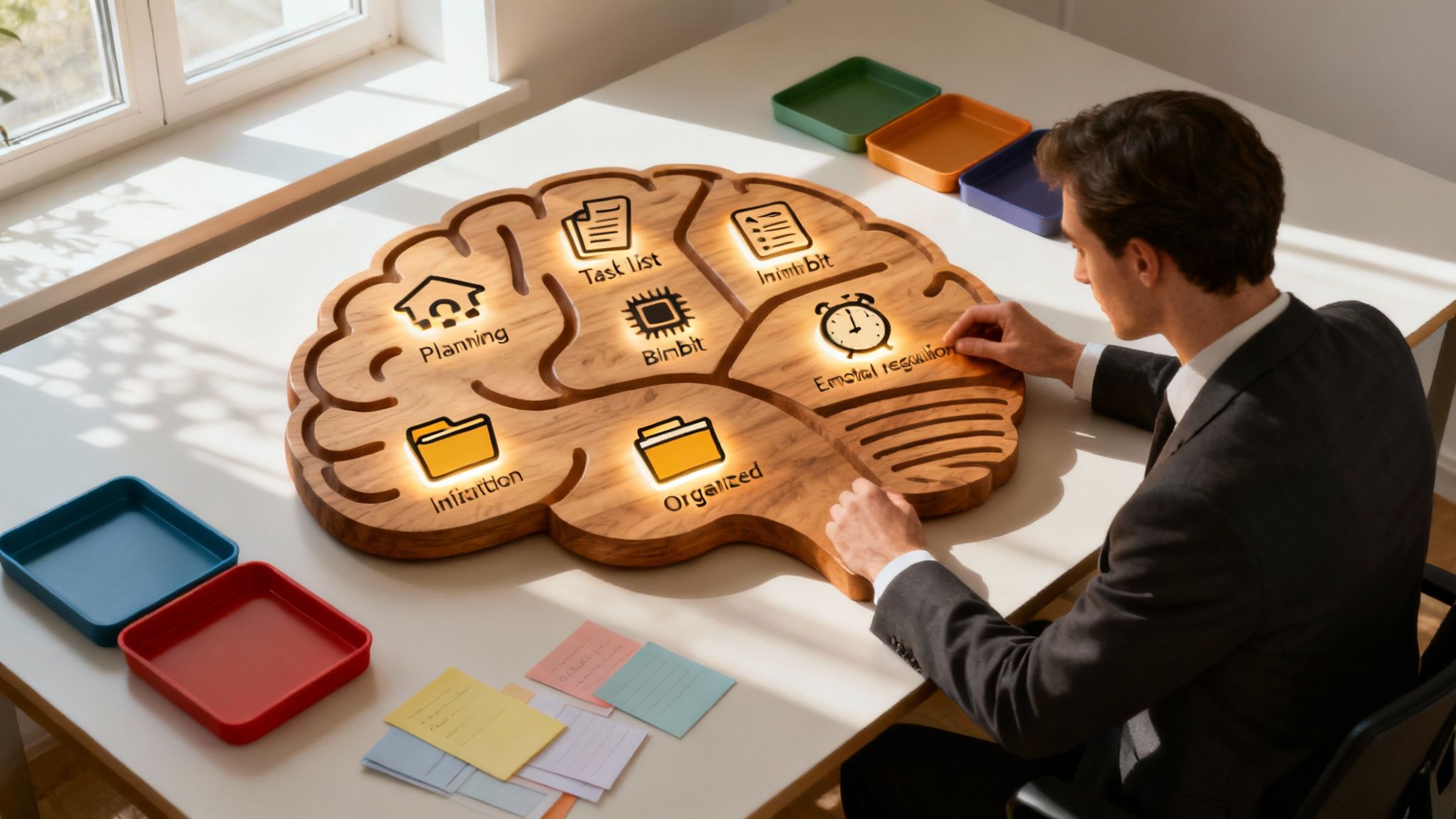Living a life with undiagnosed ADHD means living a life of periodic derailment. How can I be this age, yet still feel like I’m so incapable of the simplest things?
My home is a mess, my finances a disaster, I can’t focus at work — and I used to be so good at my job, too.
You know those times when you feel like you’ve gotten your life together, only to be derailed once again? Each time it becomes harder to get back on track, and the next derailment always seems to come faster — until eventually, you land on one question:
What is wrong with me?
You need answers, so you take to the internet.
One Google search leads to another, and so the grief process begins.
Too long; didn't read
- Diagnosis grief may leave you questioning past experiences and feeling anger at the lack of recognition and support.
- The more you learn about ADHD, the more you can embrace your neurodivergent brain and find self-acceptance.
- Diagnosis grief is not always linear.
The 10 stages of ADHD diagnosis grief
Stage 1: Recognition
You read your first article or blog on adult ADHD. It’s probably written in first-person and you recognize that you intimately relate to most — if not all — of the author’s anecdotes.
Stage 2: The ADHD hyperfocus rabbit hole
You can’t stop thinking about that article! Before you know it, you're deep down a rabbit hole that makes Alice in Wonderland seem monochrome. You consume more and more articles, follow every ADHDer you can find on Twitter and Instagram, and learn as much as you possibly can.
Stage 3: “I can fix this!”
This is it — the sudden burst of motivation you needed to take on the task of seeking an official diagnosis! “Yes, I'm going to get an ADHD diagnosis,” you tell yourself. “I might even make an appointment right now instead of procrastinating on it again.”
Stage 4: The gatekeepers and despair
It's time to go to your doctor with complete confidence that you'll at last be seen for who you are. After all, you appear to be a textbook case!
Except... your doctor doesn't agree.
"You're not what ADHD is! Everyone knows that people with ADHD can't hold down a job, get a college degree, or be in long-term, healthy relationships. Clearly you're doing just fine. Run along."
At this point, you either manage to persuade your doctor to refer you anyway, or you have a long struggle ahead. But you'll get there one way or another... because you have to.
Stage 5: The referral, mild terror, and too much admin
You finally get word that you'll be seeing a psychiatrist. At last! They send you questionnaires and lots of forms. So, so many forms.
Cue: overwhelm.
Most of us in the Late ADHD Diagnosis Club have been misdiagnosed a few times now. (anxiety and depression? Yep!)
We have a lot of hope invested in this diagnosis — so much so that it teeters on the edge of terror. You fill in your forms with such bald honesty that it may take a few therapy sessions just to unpack it all. Your family or friends have filled in forms, too, detailing all of the things they find “peculiar” about you.
Stage 6: Shame
For years, you've been told that you're messy, unfocused, lazy, distracted, and that you "never apply yourself."
The state of your home! Your missed deadlines! Your performance at work! The friends you have neglected… You feel like you can barely manage the most basic responsibilities. You're so tired. How can you have ADHD and be this tired?
(Fun fact: It is precisely because you have ADHD that you're this tired.) Years of this negative discourse — external and internal — has done untold damage to your self-esteem. You feel defeated.
You start to ask yourself, “can I be fixed?”
Stage 7: Diagnosed!!
Hopefully your psychiatrist says that it's clear that you have ADHD. (If not? Return to stage 4. It's unfair, I know. But you’re not alone.)
You feel lighter. You feel seen.
Maybe you even cry a little bit.
This feels great.
What's next?
Stage 8: “Wait, treatment, like… actually helps?”
If you're open to exploring your medication options, you'll become a guinea pig — temporarily, of course. Hopefully you'll target the right neurotransmitter with the best medication (for you) on the first go. However, most people will try a few before settling on one.
“Wow, is this what it's like for everyone else?” Your brain is actually quiet for once and you can carry on doing what you started doing without getting sidetracked every 4 minutes.
The most surprising thing? You feel more like yourself than you have for years.
The static in your head is finally dialed back.
Stage 9: Fury
Wait, why did this take so long?
How did this go unnoticed by everyone? By me?
Why didn't my parents, my teachers — ANYONE — do something?
Yes, anger is a part of the ADHD grief experience, and it’s 100% valid. Because someone should have noticed these things. Because what happened to you wasn't okay. Because it didn't have to be like this.
You deserved better.
Stage 10: Self-acceptance
You spend ages looking for that panacea — that ADHD fix. That thing that would make you normal, like everyone else.
But it doesn’t exist.
Because you're not broken. You're just different. You have a neurodivergent brain. And sure — that brain doesn't always follow the rules of our neurotypical society we’ve been forced into, and that can be an isolating and painful experience.
But - you eventually realize that your ADHD brain is a source of strength, too. For all of the challenges that ADHD brings, it's also part of the spark that makes you who you are. Your creativity and your empathy. Your curiosity, your wit, your sense of justice and your passion.
Who you are isn't in need of fixing.
It's finally time to thrive by embracing your ADHD self fully.
It's been a long time coming.
“Inflow’s educational aspect and understanding how I think and function has been huge for me, instead of just quietly assuming that I'm messed up in some way. The community aspect of the app is a big piece of it as well. The coworking sessions are now a regular part of my week.” -Inflow user
Leave your grief behind and find joy with Inflow! Manage your new ADHD diagnosis with the app that teaches, coaches, and fosters community all in one place. Get started today!

.jpg)






